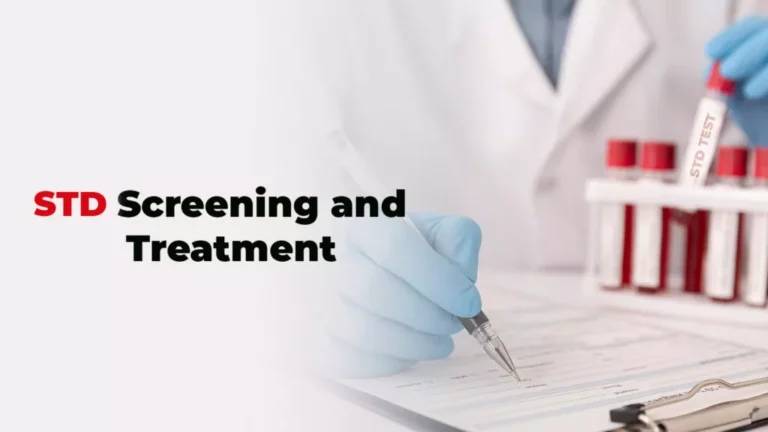UTI is a term used for an infection in the urine system, and STD is a term used for an infection transmitted by sexual intercourse. The two have different locations of infection but sometimes it can be difficult to differentiate as the symptoms are common. It is for that reason that sometimes people do not know what they are going through.
It is very important not to self-diagnose the condition. A doctor’s test can reveal the actual cause and the appropriate treatment. Understanding the difference helps when comparing uti vs std. In this guide, we will explore how to tell them apart clearly and simply.
What is a UTI?
When bacteria invade the urinary system, a UTI (Urinary Tract Infection) occurs. The infection can affect any part of the urinary tract, such as the bladder, urethra, or kidneys. It usually happens when bacteria from the skin or intestines spread to the urinary tract. The risk of infection can also be increased by not drinking enough water or by delaying urination.
Common symptoms are a burning sensation while urinating, having to urinate very frequently, and urinating that is cloudy or has a strong odor. Some people might also experience pressure or slight pain in the abdomen. Usually, these symptoms will continue to worsen if no treatment is given.
Do UTI itch? Though itching is not a typical symptom of a UTI, irritation can occur due to increased sensitivity of the area. Can a UTI cause bleeding similar to a period? A UTI can occasionally lead to blood in the urine, however, this is not equivalent to menstrual bleeding. Blood from a UTI is more likely to be seen in the toilet or on tissue after urination, rather than in the same pattern as a period.
What is an STD?
An STD, or sexually transmitted disease, is a disease that can be spread through sexual contact. This includes vaginal, oral, or anal intercourse. The microorganisms responsible for STDs can be bacteria, viruses, or parasites. While some STDs are characterized by their symptoms, others can remain asymptomatic for a long time.
Some STDs can feel similar to a UTI. Chlamydia, gonorrhea, and herpes, for example, can trigger burning when urinating, discomfort, or pain in the lower abdomen. This can lead to a situation where one assumes that a UTI is the source of the symptoms and not an STD.
You might think of an STD rather than a UTI if there is strange discharge, sores, an itch in genital areas, or if your partner also has symptoms. In such a case, it is very important to get tested for an STD when the symptoms do not go away after the UTI treatment as in that way one gets to know the right cause and thus the right treatment.

UTI vs STD: Key Symptom Differences
In situations where symptoms appear to be quite similar, one might easily get confused whether the issue is that of UTI or an STD. The most indicative factors are the site of the pain, presence or absence of discharge, and other signs that may accompany the infection.
1. Pain Location
- UTI: The main symptom is pain or burning felt when urinating. There may also be affected the lower abdomen, particularly with pain or pressure.
- STD: Pain can be felt at the time of sexual intercourse, at urination or even without any activity. Some STDs may also lead to the feeling of pain in the pelvic area.
2. Discharge Differences
- UTI: Unusual discharge is not typically associated with the majority of UTIs.
- STD: Discharge is a very common symptom in many STDs and it may vary from yellow, green, watery, or thick in appearance. Sometimes, the discharge may also have a strange odor.
3. Fever and Back Pain
- UTI: If the infection travels to the kidneys, one may experience fever and pain in the lower back. This is a sign that immediate medical attention is necessary.
- STD: Fever is rare but it could occur in severe or neglected cases. Back pain is, however, not a usual symptom of most STDs.

Is a Bladder Infection an STD?
A bladder infection represents a UTI that mainly affects the bladder; it occurs when bacteria take entry into the urinary tract and flourish. As a result, the person may experience burning sensation while urinating, frequent need to urinate, and pressure felt in the lower abdomen.
A bladder infection is not an STD. Unlike STDs, it does not spread via sexual contact from one person to another. However, sex may sometimes irritate the bladder area, which could lead to a favorable environment for bacteria growth. This bacteria can cause a UTI, but still, the infection is not due to a sexually transmitted disease; it is simply due to the bacteria.
Thus, bacteria might get triggered or aggravated through sex but the infection is not STDs. Observing correct hygiene practices, taking in plenty of water, and urinating after sexual intercourse are measures that can help to reduce the risk.
Difference Between a Bladder Infection and a Yeast Infection
- A bladder infection is a urinary tract infection (UTI) that occurs due to the presence of bacteria in the urinary system.
- On the other hand, a yeast infection results from an overgrowth of fungus (yeast) in the vagina.
- The main symtpoms of a bladder infection include burning sensation while urinating, needing to urinate very often, a feeling of fullness in the lower abdomen, and sometimes the urine may contain blood.
- The main symptoms of yeast infection are: itching, redness, swelling, and thick white discharge (similar to cottage cheese), but most of the time there is no burning sensation when urinating.
- A bladder infection is taken care of by means of antibiotics.
- A yeast infection is cured with the help of antifungal creams or pills.
- An infection in the bladder is considered to be in the urinary tract.
- A yeast infection is limited to the vagina or outer genital area.
How Doctors Diagnose the Difference
First, doctors rule out UTI or STD with symptoms. Through a urine test, a doctor can ascertain if there is a UTI, while a blood test or a swab can reveal the presence of an STD. It is these tests that help make sure that the right treatment is administered because different medications and care are required for UTIs and STDs.
Treatment Options
- UTI: The usual way of treating UTIs is by taking antibiotics prescribed by a physician.
- STD (bacterial): The treatment involves specific antibiotics depending on which infection is present (e.g., chlamydia or gonorrhea).
- STD (viral): It cannot be treated; however, antiviral drugs (like for herpes) can manage the symptoms.
- Increase your intake of water: To eliminate bacteria from the urinary system.
- Never self-medicate: Always obey the doctor’s orders.
- Take the entire medication course: Even when the symptoms start to fade away

How Infections in One Area Affect Overall Health
Infections in one area of the body can sometimes influence a person’s general health. For instance, if a UTI or an STD is not treated, it can lead to a kidney infection or inflamed pelvis as a complication which is why treatment and check-ups should be done regularly.
Sinus problems are other infections that might affect one’s energy, sleep, and immune system. If they are not treated, they can turn into more serious issues.
Learn more about sinus infections treament and more here: Sinus infection and Causes of sinus infections
Prevention Tips
- Water should be consumed in large amounts to ensure the urinary tract is kept nice and clean.
- The urination by women after sexual intercourse will really help to cut the chances of getting a UTI.
- Condoms are a good practice for both partners; they will also help prevent sexually transmitted infections (STIs).
- The hygiene of the genital area should be kept at a high standard.
- The use of scented soaps, bubble baths, or harsh cleansers that may irritate the area should be avoided.
- The wearing of underwear made from cotton is important to let air circulate and thus prevent moisture from collecting.
- If you are sexually active or prone to UTIs get respective check-ups.
Conclusion
UTIs and STDs give rise to some of the same symptoms, however, they are definitely different medical conditions. Therefore, going for the correct tests is crucial for getting the right treatment. Timely care coupled with good prevention habits will be the key to both being effectively treated and managed.
Protect your health today, visit Novamed Urgent Care for fast testing and expert treatment for UTIs and STDs!






